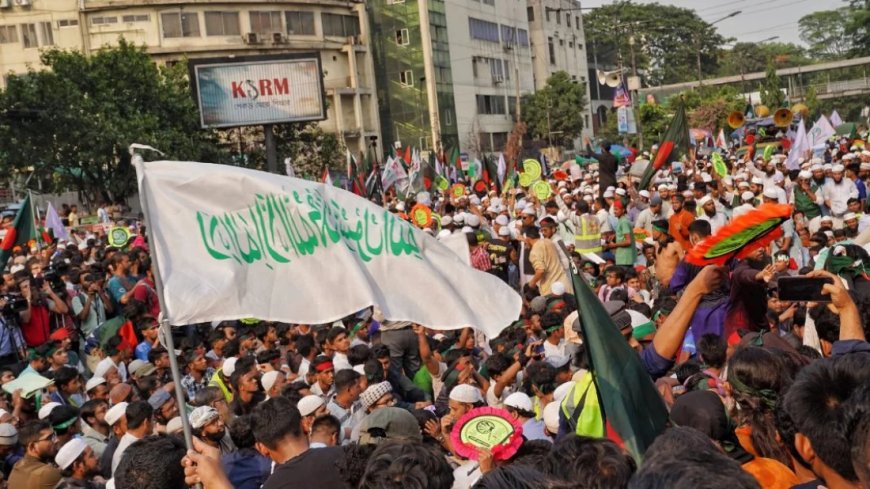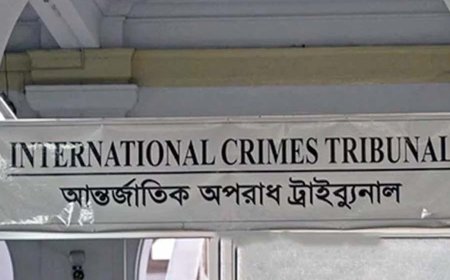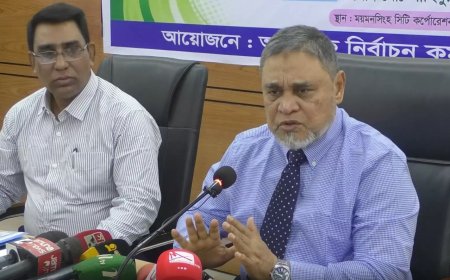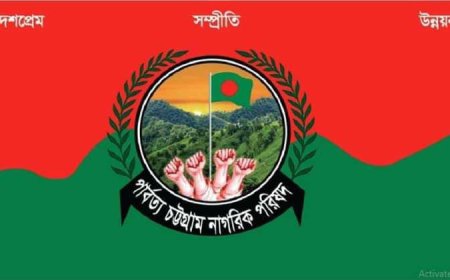Does Banning Political Parties Offer a Real Solution?
Demonstrators in Shahbagh Call for Awami League to Be Outlawed

The ongoing "Shahbagh Blockade" has brought the demand to outlaw the Awami League to the forefront of national discourse. While there is widespread agreement on holding the ousted party accountable for its actions over the past 16 years, opinions remain divided on whether a formal ban is the appropriate course. Demonstrators who have been occupying Shahbagh since Friday night are calling on the interim government to issue an official declaration banning the Awami League, vowing to maintain the blockade until such a notification is released.
Mass mobilizations have erupted at symbolic sites tied to the July uprising, as organizers declare the onset of a "second uprising phase." From their base in Shahbagh, protesters are pushing a three-point demand centered around the party's ban.
At 2 p.m. on Saturday, a five-member delegation from the Gono Odhikar Parishad submitted an eight-point memorandum to the Interim Chief Adviser’s office. The group called for the Awami League to be designated a fascist entity and held accountable in a genocide tribunal.
Multiple political organizations have voiced support for the proscription. Gono Songhoti Andolon argues that the Awami League’s fifteen-year tenure was marked by authoritarianism—citing enforced disappearances, rampant corruption, suppression of dissent, electoral manipulation, looting, and money laundering.
“More than 1,500 students, workers, and civilians were killed during the July–August protests, and thousands more were injured,” said Zonayed Saki, Chief Coordinator of Gono Songhoti Andolon. Executive Coordinator Abul Hasan Rubel added that only a formal ban and judicial proceedings could prevent further abuses.
National Communist Party (NCP) convener Nahid Islam echoed these sentiments, stating his party demands the Awami League be designated a terrorist organization, the International Crimes Tribunal Act be amended to enable party-level trials, and a formal July Declaration be issued.
Shahbagh protest leaders have pledged to sustain the sit-in indefinitely. Blockade points have multiplied across Dhaka, and organizers warn that, unless the government acts, protestors from across the country will once again flood the capital.
However, dissenting voices caution against such drastic action. BNP Standing Committee member Gayeshwar Chandra Roy, speaking at a 12-party alliance rally on Saturday, argued that banning political parties is not a solution. He emphasized that democratic norms and rule of law—not executive decrees—should determine a party’s legitimacy.
Senior BNP leaders, speaking to the Dhaka Tribune, affirmed support for judicial proceedings against Awami League leaders for alleged violence against BNP supporters. Yet they oppose a blanket ban, warning that such moves risk driving political actors underground and making them more resilient, not less.
A statement from the Chief Adviser’s Press Wing on Friday confirmed that the government is “seriously considering” petitions to ban the Awami League. Ongoing consultations with political stakeholders are expected to shape the final decision. In the meantime, blockade participants have been urged to remain patient.
A senior politician, speaking on condition of anonymity, warned that banning entrenched parties like the Awami League, BNP, or Jamaat-e-Islami often backfires. “Look at Jamaat,” he said. “After its 2013 ban, it re-emerged stronger and more organized over the next fifteen years.”
Legal constraints further complicate the issue. Under Section 18 of the Anti-Terrorism Act 2009, authorities may proscribe organizations deemed threats to national sovereignty. However, the Political Parties Ordinance of 1978 mandates that any move to dissolve a registered party must be adjudicated by the High Court.
Supreme Court lawyer Barrister Jyotirmoy Barua clarified: “The executive cannot unilaterally ban a political party. Legal conditions must be fulfilled, and the judiciary has the final say.”
As the Shahbagh blockade persists and legal debates deepen, Bangladesh stands at a crossroads—between using proscription as a tool against perceived tyranny, and upholding democratic norms that protect even the most controversial political entities through due process.
What's Your Reaction?






















































































